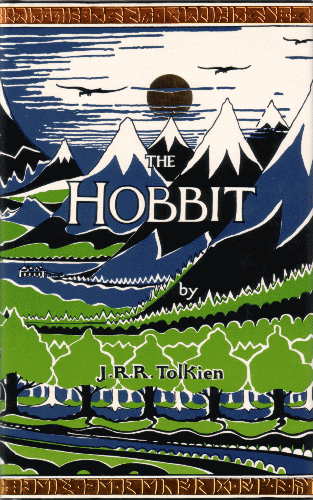
Why I Hate The Hobbit

If you know me, it makes no sense. I’m in love with classic and modern fantasy. I sincerely enjoyed the Lord of the Rings series. World-building is my dearest love. So what do I have against one of the greatest prequels to ever prequel, this spectacular tale of dragons and adventure?
Blame my 6th grade English class.
English was always my favorite subject. I breezed through it. I was a voracious reader. I read about two books a week. When my teacher made an announcement, I was ecstatic: this year, we would be starting the class reading a fantasy novel. Dragons? Dwarves? Elves? In school? I was over the moon.
We read The Hobbit popcorn-style, out loud, in class. We went around the classroom, each reading a paragraph aloud. It was to “strengthen our vocabulary, pronunciation, and reading skills.” We weren’t allowed to read ahead. After each chapter, we would do an exercise where we had to write a rigidly rhyming sonnet summarizing, and write a paragraph predicting what would happen next.
I was bored out of my mind.
It took us five months to read the 366-page book. I held out as long as I could, but I’d finished the book by the end of October and re-read it about ten times by mid-January, when the class finally finished. I got in trouble twice for reading ahead. Actually in trouble—the teacher paused to yell at us and took points off my grade for the day. By mid-January, I’d analyzed every word down to its individual letters. I’d stared at the copyright information for long periods of time. I’d turned day-dreaming while paying enough attention to know when it was my turn to read into an art form. To this day, I could probably do a chapter-by-chapter walkthrough.
I was in honors English the next year, and I was never as excited to do my homework as when my teacher told us we should (could) read two chapters of the book on our own at home for the next day of class.
I think about that class a lot when I read articles about how to get young people excited about literature. Those teachers had probably read about Harry Potter and decided that fantasy would solve their problem. But by making the assignments torturous, by slowing down the pace and narrowing the scope of thought, the class effectively squashed any excitement that could have arisen out of the magic of Tolkien. Even for me, a voracious reader, a lover of fantasy, it ruined a book. As in so many other English classes, it’s not just about what you teach, but how.
Limiting what young people can read and how they’re allowed to read it also limits their enjoyment of reading. When you tell a young person that they aren’t allowed to read ahead, it limits the joy they will get from soaring through a novel or from the pace of an adventure. This story tells a lot about how literature education can fail children early, by stealing their love of a good story out from under them.
Fantasy can be really powerful in getting children to read—and reading most certainly matters. For one thing, a study from Yale University showed that being a reader correlated with living longer and stronger cognitive abilities. Reading has helped me get better at assessing situations, problem-solving, and giving advice. By the time I was 15, I was my friends’ relationship counselor and mental health consultant—not because I had more life or relationship experience (I had very little of either), but because reading had given me an understanding of how the world worked.
But more importantly, books had taught me that there are people out there with diverse experiences wildly different than mine, and it has put me inside of their heads. Studies have shown that adults who read Harry Potter when they were kids have grown up to be more empathetic and tolerant of marginalized groups. That’s not something to take lightly. Books teach children how to visualize experiences outside of their own.
It’s great that my school wanted to get kids excited about reading. But incorporating exciting genres isn’t the solution. We need to let kids read, let them enjoy reading, and let them form their own opinions about a text to defend and debate. Kids will get excited about literature if we let them.








